Discover Protein Production Technology Podcast
Protein Production Technology Podcast

66 Episodes
Reverse
In this episode of Protein Production Technology International, experts from across the alternative protein sector explore the challenges and opportunities of transitioning from feed-grade to food-grade production. Industry leaders share insights on optimizing fermentation and downstream processing, navigating complex regulatory landscapes, and attracting strategic investment to scale production. The panel emphasizes the importance of taste, texture, and price parity in winning over consumers, alongside the need for collaboration with established food manufacturers to accelerate market entry. They also discuss the role of pilot facilities, the importance of clear regulatory strategies, and how aligning with consumer expectations—rather than pushing sustainability narratives—can enhance product acceptance. The conversation highlights that achieving food-grade success requires not only technological innovation but also smart partnerships, clear communication, and an unwavering focus on delivering delicious, affordable, and trusted products.
In this episode of Protein Production Technology International, Katrien Verbrugge and Dominik Michel discuss how their companies collaborate to support sustainable food production through advanced bioprocessing and filtration technologies. They highlight the critical role of clean, efficient bioreactors and contamination control across all stages of production, from R&D to full-scale manufacturing. Emphasis is placed on ensuring regulatory compliance, product safety, and operational efficiency through advanced filtration for water, air, and steam. They also explore the importance of scaling fermentation processes smoothly and the value of integrated software platforms for seamless process control. Together, their combined expertise in bioprocessing equipment and contamination control helps companies in the alternative protein sector scale up safely, efficiently, and sustainably, driving innovation in the future of food manufacturing.
In this episode of Protein Production Technology International, industry experts discuss the challenges of scaling alternative proteins from lab to market. The panel explores key bottlenecks, including strain optimization, downstream processing, and securing the right contract manufacturers. They highlight the importance of early techno-economic analysis, batch-to-batch consistency, and leveraging predictive tools for strain engineering. Sustainability remains a priority, with discussions on upcycling side streams and balancing profitability. Regulatory hurdles and geopolitical factors also shape commercialization strategies, with insights on diversifying markets and alternative revenue streams. The conversation underscores the need for collaboration, strategic partnerships, and adaptable business models to navigate the evolving landscape of alternative protein production.
In this episode of Protein Production Technology International, Kerry Rees, Partner and Patent Attorney at HGF, leads a discussion on the strategic importance of Intellectual Property (IP) in the food technology sector. The conversation highlights how a robust IP strategy can help companies protect innovations, gain a competitive edge, and attract investors. Key takeaways include understanding the role of IP in market differentiation, how it builds investor confidence, and aligning IP strategies with long-term business growth. The episode also features insights from alternative protein companies, showcasing real-world examples of leveraging IP to safeguard innovation and expand market reach.
In this episode of Protein Production Technology International, host Nick speaks with Chris Saenz, Segment Development Manager of Biomanufacturing at Beckman Coulter Life Sciences. Chris shares insights into Beckman Coulter's role in advancing alternative proteins, particularly through precision fermentation. He explains how the company supports innovators in the sector by streamlining workflows and optimizing processes for faster R&D in sustainable food production. Chris also discusses the company’s strategic growth through in-house development and acquisitions, along with the importance of close collaboration with scientists to meet the evolving needs of the market. Challenges like scaling production and the exciting future of synthetic biology are also explored.
In this episode of Protein Production Technology International, Ryan Kromhout, Manager of KROHNE’s Global Food Industry Division, discusses the role of advanced measurement solutions in optimizing plant-based protein production. Kromhout highlights how precise, real-time measurement tools—such as inline flow meters and density analyzers—can streamline production processes, ensuring consistency and quality while reducing waste. He shares insights into how hybrid products, combining plant-based and animal proteins, are emerging as a significant trend in reducing the food industry's carbon footprint. Kromhout also emphasizes the importance of innovation and collaboration with smaller engineering firms to adapt traditional food production technologies for the alt-protein sector. Looking ahead, he believes advancements in blending technologies and inline processing will further accelerate the transition to sustainable protein sources.
In this episode of Protein Production Technology International, Elvedin Ramani, Product Manager for Alternative Proteins at Holac Maschinenbau, discusses the critical role precision cutting technology plays in producing high-quality alternative protein products. He explains how Holac’s cutting machines are designed to process a wide range of plant-based ingredients—such as soy, pea, beans, and lentils—into various textures and sizes, ensuring an appealing final product. Ramani highlights the versatility of Holac’s machines, which can handle everything from small-scale R&D batches to industrial-scale production, processing up to two tons per hour. He also shares how Holac is helping customers optimize processes, reduce waste, and implement automation to improve efficiency. The conversation touches on sustainable practices, product customization, and exciting developments in the alt-protein space, including hybrid products and new protein sources from fermentation technologies.
In this episode of Protein Production Technology International, host Nick speaks with Ivor Lyons and Carla de Urrutia from Alt Dairy. They discuss their journey into food tech and the development of their company, which specializes in producing large-scale alternative dairy ingredients for the food service sector. Alt Dairy caters to the growing demand for dairy-free products, especially in response to rising concerns over dairy intolerance and plant-based diets. The company focuses on supplying concentrated, allergen-free, plant-based ingredients like oat and cashew milk in large formats, which reduces costs for businesses. Ivor and Carla highlight their commitment to supporting food manufacturers with high-quality, customizable ingredients, and share insights into how they’ve stayed ahead of the market by predicting trends and focusing on allergen-free solutions.
In this episode of Protein Production Technology International, Nick interviews Charlotte Hughes, Marketing Scientific Content Writer at Hamilton Process Analytics. Charlotte shares her journey from protein biochemistry research to her role at Hamilton, where she now focuses on process analytical technology (PAT). She explains how Hamilton’s advanced sensors and real-time monitoring tools optimize key parameters like pH, dissolved oxygen, and carbon dioxide in cultivated meat production, helping ensure consistent and high-quality yields. Charlotte emphasizes the importance of data integration and transparency in scaling production processes, as well as addressing regulatory and consumer trust challenges. She also highlights potential collaboration across alternative protein sectors, particularly in fortifying cultivated meats with precision fermentation-derived nutrients. Looking ahead, Charlotte sees Hamilton continuing to innovate to meet the evolving needs of the cultivated meat industry.
In this episode of Protein Production Technology International, Jim Laird, CEO of Enough Foods, and Michael Kilkie, Head of Culinary, discuss the company’s journey in producing Abunda®, a sustainable microprotein that aims to address global food challenges. They highlight how fermentation provides an efficient alternative to traditional protein sources, using fewer resources like water and land. Enough Foods has built a strong foundation through strategic partnerships and funding, allowing them to scale production significantly. They emphasize the importance of collaboration, sustainability, and ensuring that their products meet consumer demands for taste and texture. The episode also touches on their focus on growing capacity, with their new facility in the Netherlands, and their vision for integrating alternative proteins seamlessly into the global food system.
In this episode of Protein Production Technology International, Nick interviews Daniel Kennedy, Director of Platform and Business Development, and Akshay Arora, Director of Innovation Protein Fortification, from Ingredion. The discussion revolves around the company's role in the plant-based protein sector and the opportunities for innovation in snacks, beverages, and traditional meal replacements. Sustainability is key for Ingredion, and they focus on using pulses like peas, fava beans, and lentils to develop protein-rich ingredients with a low carbon footprint. They highlight innovations like their Ultra Performance portfolio, which minimizes water and energy use in production. The duo also discusses Ingredion's comprehensive consumer insights tools, Atlas, and their focus on taste, texture, nutrition, and affordability when developing ingredients for their customers. Additionally, they explore future trends, such as breeding plants for better functionality, blending proteins, and the broader role of plant proteins in global food sustainability.
In this episode of Protein Production Technology International, Vineet Singhal, Managing Director and CEO of Relsus, discusses the company's journey and mission to create sustainable plant-based proteins. He outlines how his team's expertise in pharmaceutical ingredient production helped them innovate solutions for the plant-based sector. Singhal emphasizes the importance of addressing climate change, noting that food systems contribute significantly to global greenhouse gas emissions. Relsus differentiates itself through robust supply chains, organic farming partnerships, and proprietary extraction technology that enhances the quality and sensory profile of its proteins. The discussion also covers the company’s focus on chickpea and mung bean proteins, their functionality, and sustainability. Future plans include expanding market reach, scaling production, and potentially exploring fermented proteins as the next step in alternative protein development.
In this episode of Protein Production Technology International, host Nick speaks with Kerry Rees, partner and patent attorney at HGF, a leading intellectual property law firm. Kerry shares insights on the critical role intellectual property (IP) plays in the food tech sector. He explains the importance of patents for protecting innovations, securing investment, and creating market advantages. Kerry also outlines key considerations for startups, such as aligning IP strategy with business goals, the timing of patent filings, and the benefits of maintaining trade secrets in some cases. He emphasizes the need for expert guidance to navigate the complex world of IP and avoid common pitfalls. Kerry highlights the evolving landscape of IP in food technology, including precision fermentation and cellular agriculture, and offers practical advice on building strong, cost-effective IP portfolios.
In this episode of Protein Production Technology International, Nick interviews Cyril Francourt, CEO of FlavaPulse, a Bulgaria-based company specializing in the sustainable production of yellow pea ingredients, particularly pea protein concentrates. Cyril explains the inspiration behind FlavaPulse’s creation, highlighting the company’s focus on sustainability, regenerative agriculture, and energy-efficient mechanical processing like air fractionation. He also discusses Bulgaria’s ideal conditions for producing high-quality peas, which are crucial for maximizing protein content in their products. FlavaPulse’s pea protein concentrates are used in various applications, from meat analogs to dairy alternatives, offering advantages in cost, functionality, and CO2 footprint compared to soy and protein isolates. Cyril emphasizes the company’s innovations in eliminating bitter aftertastes from pea proteins and their commitment to long-term growth, focusing on expanding production capacity while maintaining sustainability. The episode concludes with a discussion on the company’s openness to strategic partnerships that can help drive further market access and product development.
In this panel discussion, we’ll explore how Process Analytical Technology (PAT) is revolutionizing the future of food through precision fermentation. As the food industry shifts toward more sustainable, scalable, and efficient production methods, precision fermentation is emerging as a cornerstone for producing alternative proteins, enzymes, and other high-value ingredients. Ensuring the consistent quality and safety of these products is essential, and PAT plays a critical role in achieving this.A panel of experts will focus on the advanced analytical techniques used to optimize product quality in precision fermentation. By leveraging real-time data from PAT tools – such as spectroscopy, chromatography, and advanced sensors – food innovators can monitor critical parameters like protein expression, metabolite levels, and overall product consistency. This technology enables real-time adjustments that optimize the fermentation process, ensuring that the final product meets the highest standards for taste, texture, and nutritional value.As the demand for alternative proteins and sustainable food sources continues to grow, precision fermentation offers a promising solution. With PAT, producers can scale operations more effectively, reduce waste, and improve overall efficiency – paving the way for affordable, high-quality alternative food products. The webinar will also feature case studies showcasing how industry leaders are integrating PAT to enhance product development and ensure the future of food is both nutritious and sustainable.
In this episode of Protein Production Technology International, Brittany Chibe, co-founder and CEO of Aqua Cultured Foods, discusses her company's innovative approach to creating sustainable, fish-free seafood through fermentation. Brittany shares how her passion for ocean conservation led her to co-found the company, which produces products like tuna and scallops that closely mimic traditional seafood in taste and texture. The episode highlights their success in fine dining, particularly with raw dishes, and their focus on providing a consistent, high-quality supply. Brittany explains the fermentation process that creates a clean-label product with a long shelf life, free from allergens, mercury, and microplastics. She also discusses the importance of transparency, food safety, and sustainability, as well as the company's plans for future product development, including a ground seafood option. Aquacultured Foods aims to offer a sustainable alternative to traditional seafood while supporting ocean conservation.
In this special episode of Protein Production Technology International, host Nick interviews Erika Georget, Managing Director of ERIDIA, a company specializing in scaling fermentation and cellular agriculture technologies. Erika discusses ERIDIA's comprehensive services, from feasibility studies to large-scale plant design, with a focus on optimizing processes for food, biopharmaceutical, and chemical industries. She highlights ERIDIA’s unique position as a joint venture, combining expertise in process engineering and biopharmaceutical scaling. Key topics include the importance of starting scale-up considerations early, avoiding common cost traps, and the value of outsourcing specialized tasks. Erika also shares insights on how ERIDIA helps startups navigate complex challenges in scaling, ensuring both market readiness and process efficiency. The episode concludes with a look at the future potential of fermentation and cellular agriculture in transforming sustainable food production.
In this episode of Protein Production Technology International, host Nick speaks with Paul Shapiro, CEO and co-founder of The Better Meat Co. Paul discusses his journey from animal welfare advocate to founding a company that creates sustainable meat alternatives using fungi-based microprotein. He explains how this technology offers a more cost-effective, nutritious, and environmentally friendly alternative to both traditional meat and plant-based products. The conversation highlights The Better Meat Co.'s innovative fermentation process, which rapidly produces a protein-rich product in just hours, and the company’s goal of scaling production to compete with conventional meat. Paul also touches on the challenges of large-scale production, the environmental benefits of microprotein, and the broader societal shift towards more ethical and sustainable food systems.
In this episode of Protein Production Technology International, Nick speaks with Stephanie Jochems, Managing Director of Marlow Ingredients, a UK-based company specializing in producing mycoprotein, the key ingredient in the well-known meat-free brand Quorn. Stephanie shares the company’s mission to address food and protein scarcity, a founding principle dating back to the 1960s. Marlow Ingredients now aims to accelerate the protein transition by making its mycoprotein available to other businesses, moving beyond just the Quorn brand. The discussion highlights the versatility and sustainability of mycoprotein, which offers high nutritional value with a complete amino acid profile and fiber content while being low in saturated fat and cholesterol. Stephanie emphasizes the importance of taste, texture, and price in consumer adoption, alongside the environmental benefits of mycoprotein, such as reduced carbon emissions and land use compared to traditional proteins. She also explains Marlow Ingredients' approach to working with B2B customers and the company's readiness to scale up production to meet growing demand.
In this episode of Protein Production Technology International, Ryan Kromhout from KROHNE discusses innovative solutions for improving the production of plant-based meat and fish analogs. The episode explores a new methodology for real-time, inline blending of plant-based slurries, allowing for continuous production without interruptions. This process helps producers scale from pilot to large-scale operations, increasing efficiency while maintaining texture quality. Additionally, the episode covers how this approach tightens production tolerances and reduces costs, particularly when dealing with challenging ingredients like fibers and solids. It's a must-listen for professionals seeking to optimize plant-based analog production.
In this episode, we speak with Mark Warner, CEO at Liberation Labs, which is expanding precision fermentation to meet rising alt protein demand. Their new biomanufacturing facility in Richmond, Indiana, designed for precision fermentation, aims to overcome existing infrastructure challenges and produce bio-based ingredients at commercial scale. With a capacity of 600,000 liters, it’s set to expand to four million liters, with plans for global facilities. Liberation Labs’ flexible production model, rapid turnaround times, and high recovery yield offer a cost-effective advantage. The company anticipates doubling or tripling the industry’s capacity over the next decade, addressing food and non-food applications.
In this episode of Protein Production Technology International, we explore the vital role of precision analysis in advancing alternative proteins. Sponsored by Xylem and C. Gerhardt GmbH, the session "Decoding Alternative Proteins: The Power of Precision Analysis" focuses on how advanced lab equipment is transforming protein content and quality assessment for plant-based, insect, and fermentation-derived proteins.Expert speakers, including Patrick Sudwischer from IFF Braunschweig, Zoe Wang from AGT Foods Canada, Michelle Kuzio from Xylem Laboratory Solutions, Lukas Zibula from C. Gerhardt GmbH, and Dr. Ismail Acir from the University of Bonn, discuss the challenges and solutions in nutritional profiling, accurate protein determination, and regulatory compliance. The session also highlights how cutting-edge tools like the N Realizer combustion system are driving product development, enhancing safety, and meeting consumer demands for high-quality, sustainable food options.Tune in to learn about the latest technological innovations in protein analysis and the growing impact on the future of alternative proteins.
In this special episode of the Protein Production Technology International podcast, host Nick Bradley interviews Ali Osman, CEO & Founder of PFx Biotech, a Portuguese company specializing in precision fermentation to develop specialty proteins. Ali shares his journey from food scientist to biotech entrepreneur, driven by both professional and personal motivations, including his son's allergy to cow's milk proteins. PFx Biotech focuses on producing human milk proteins to improve infant nutrition and address cow's milk protein allergies. Ali discusses the broader applications of these proteins beyond infant formula, their potential in various dietary needs, and the company's achievements in scalability, cost-effectiveness, and maintaining protein functionality. He emphasizes the importance of collaboration with large corporations and government bodies for sustainable food production. Ali also touches on the challenges of funding and the need for careful planning and milestone achievement for biotech startups. Listen in to learn more about PFx Biotech’s innovative work and Ali Osman’s vision for the future of food technology.
In this special episode of the Protein Production Technology International podcast, host Nick Bradley interviews Ernesto Cevallos Coppel, CEO of PROTEO, and Gabriel Fuertes, CCO, to explore their innovative work in alternative proteins through precision fermentation. Ernesto discusses PROTEO's journey, beginning a decade ago, and their pioneering efforts in the biotech sector in Mexico, focusing on developing yeast protein as a sustainable and nutritious food source. Gabriel elaborates on the diverse applications of yeast protein in various food matrices, highlighting its environmental benefits, nutritional profile, and potential to address global food challenges. The conversation also covers PROTEO's strategic positioning within the alternative protein market and their commitment to sustainability and innovation. Listen in to learn more about PROTEO’s groundbreaking work and its impact on the future of food technology.
In this special episode of the Protein Production Technology International podcast, Michelle Kuzio, Product Manager for North America at Xylem Laboratory Solutions, and Pedro Braun Streb, Deputy Sales Manager for Europe at Gerhardt, discuss their companies' roles in advancing lab solutions and protein analysis. Michelle highlights Xylem’s partnership with Gerhardt, emphasizing their collaborative efforts in providing cutting-edge, automated lab equipment that focuses on sustainability, safety, and quality. Pedro delves into Gerhardt’s history and evolution in food analysis, particularly their innovations in protein and fat analysis. The conversation covers the challenges and advancements in protein analysis, including methods like Kjeldahl and Dumas, and their applications in emerging fields such as alternative proteins. Both guests share insights on how their companies are addressing industry needs and contributing to the future of food technology. Listen in to learn more about the innovative solutions shaping the future of lab analysis and protein production.
In this episode of the Protein Production Technology International podcast series, we dive into the dynamic world of research financing for fermentation R&D. Our guests include Wendy Goodson, Vice President of Business Development (Government) at Ginkgo Bioworks, Sharyn Murray, CFA, Senior Manager of Investor Engagement & Financing at The Good Food Institute, Andrew D Ive, Founder and Managing General Partner at Big Idea Ventures, Arttu Luukanen, Senior Vice President of Space & Defence at Solar Foods, and Erin Rees Clayton, Senior Scientific Research Advisor at The Good Food Institute. These experts, moderated by Nick Bradley, Editorial Director at Future-Proof Group Media, explore the current investment landscape for alternative proteins, highlighting innovative funding strategies amidst today's challenging economic climate. Discover insights into government grants, venture capital trends, and the crucial role of philanthropy in driving sustainable food tech advancements. Tune in now!
In this episode of Protein Production Technology International, host Nick Bradley welcomes Laura Clews and Chris Hamer, partners at IP firm Mathys & Squire. The conversation highlights promising technologies like plant-based meat, cell-cultured meat, insect protein, and precision fermentation, emphasizing challenges like scalability, consumer acceptance, and cost. Laura and Chris explore the IP landscape, emphasizing the importance of patents, trademarks, and trade secrets in protecting innovations. They cite recent legal cases involving Meati Foods, Better Meat Company, Impossible Foods, and Motif, illustrating common pitfalls and the need for robust IP strategies. They also discuss the coexistence of traditional livestock farming and alternative proteins, predicting a balanced future. Listen in to learn more about the innovations and challenges in the alternative protein sector and the crucial role of intellectual property.
In this special episode of the Protein Production Technology International podcast, host Nick Bradley interviews Mohammad El Hajj, CEO of Bright Biotech, a UK-based molecular farming startup. Mohammad shares his journey from Lebanon to Manchester, driven by a passion for biotechnology and a desire to make protein medicines more affordable. Bright Biotech focuses on reducing the cost of producing cultivated meat using chloroplast genetic systems for high-yield protein production. He discusses the unique advantages of this system, including scalability, sustainability, and regulatory benefits. He also explores the current state of the cultivated meat industry, its challenges, and how Bright Biotech's technology addresses critical issues such as growth factor availability and cost. Mohammad provides insights into their fundraising journey, the importance of regulatory frameworks, and the future milestones for Bright Biotech. Listen in to learn more about Bright Biotech's innovative approach and its potential impact on the cultivated meat sector.
In this episode of the Protein Production Technology International podcast, George Peppou, CEO & founder of Australia’s Vow, shares his journey into the cultivated meat industry. Starting as a chef with a biochemistry background, George founded Vow to revolutionize the food system by integrating sustainability at its core. He discusses the challenges faced in launching Vow, such as finding lab space and establishing a supply chain suited for food rather than pharmaceuticals. George elaborates on Vow's unique approach to creating new and exotic meats rather than replicating traditional ones, exemplified by its innovative quail product. He also addresses misconceptions about lab-grown meat and highlights their strategies for cost reduction and regulatory compliance. The episode concludes with insights into Vow's market introduction in Singapore and the positive reception to its innovative products. Listen in to learn more about the future of cultivated meat and Vow's innovative journey.
In this episode of Protein Production Technology International, we explore the challenges and innovations in the alternative proteins industry. Moderated by Nick Bradley, our speakers include Jason Tucker, Karsten Schellhas, Brian Jacobson, Steve Radke, Juan Martinez, and Dan Wolff. They discuss the high capital expenditures required for setting up production facilities and the uncertainties in market demand that can deter investors. To navigate these hurdles, companies like Aleph Farms are adopting a 'CapEx-light' strategy, leveraging existing infrastructure for faster and more cost-effective expansion. The experts share insights on optimizing production through intelligent equipment choices and the benefits of partnering with experienced suppliers. Join us as we delve into the dynamic world of alternative protein production and the strategies for achieving sustainable growth.
In this insightful episode of the podcast, Zoe from New Wave Biotech shares the genesis and aspirations of their UK-based company which specializes in developing software to optimize biomanufacturing processes. Their technology particularly benefits the alternative protein industry but is also applicable to biochemicals and biomaterials, aiming to streamline R&D to accelerate sustainable product market introductions.
In this episode of the Protein Production Technology Webinar Series 2024, experts Joseph Thomas, Jessica Mannix, Priera Panescu, Karthik Pandalaneni, and Michael Spinelli delved into accelerating alternative protein innovation through advanced lab-based technologies. They highlighted the pivotal role of tools like protein engineering, bioinformatics, spectroscopy, and automated analyzers in shaping the future of alternative proteins. These technologies enable faster development cycles, precision control of protein properties, and efficient production methods, ultimately paving the way for a more sustainable and diverse food future. The panelists explored the challenges in lab-scale protein research and emphasized essential technologies that enhance efficiency, speed, and innovation in the alternative protein sector.
In this podcast, we explore the vital role of intellectual property (IP) in the rapidly expanding alternative protein industry, focusing on the protective power of patents for innovative companies. Chris Hamer and Laura Clews from Mathys & Squire provide insights into the intricacies of IP law as it relates to the food tech sector, particularly the creation and commercialization of alternative proteins.The conversation highlights how strong IP portfolios with patents on manufacturing processes or unique protein strains significantly boost a company's competitive edge. They discuss the legal frameworks that allow companies to protect their innovations while fostering a competitive market necessary for continuous improvement.Key topics include the importance of understanding existing IP rights, the strategic filing of patents to avoid litigation, and the potential of IP to facilitate collaborative innovation in creating sustainable food solutions. The case of Impossible Foods vs. Motif Foodworks is examined to underscore the complexities and strategic importance of IP in defending product uniqueness and market share. This discussion not only sheds light on the current state of IP law in food technology but also provides valuable strategies for emerging companies in the sector.
In this insightful episode, we delve into the complex world of intellectual property (IP) related to alternative proteins, a rapidly expanding sector due to its innovative approaches to sustainable food production. Our hosts are joined by Sara Holland and Andrew Tindall, IP experts from Potter Clarkson, who specialize in synthetic biology and alternative proteins, including cultivated meat.
In this episode of the Protein Production Technology International Podcast, a distinguished panel including Brian Sylvester of Perkins Coie, Kaitlin Grady from Clever Carnivore, Panchali Chakraborty of Givaudan, David Ziskind of Stantec, Eugene Wang from Sophie's BioNutrients, Arpad Csay of GEA Systems North America, and Kerry Rees of HGF Limited, delve into the multifaceted world of alternative proteins. The conversation traverses the landscape of sustainability, innovation, and the future prospects of the industry, underlining the sector's positive trajectory driven by global concerns over sustainability, health, and animal welfare. Challenges such as scalability, cost, and consumer perceptions are thoroughly discussed, highlighting the essential role of technological advancements and market expansion. The episode encapsulates the essence of collaboration, transparency, and strategic partnerships as indispensable tools for surmounting industry hurdles and steering the alternative proteins sector towards sustained growth and success.
In this episode of Protein Production Technology International, hosted by Nick Bradley, experts from around the globe gathered to discuss the transformative power of fermentation technology in creating sustainable alternative proteins. The panel, featuring industry leaders and technical consultants, dove into how fermenting proteins from sources like yeast and bacteria offers a promising solution to meet the world's growing protein needs while significantly reducing the environmental impacts associated with traditional animal agriculture. Key topics included the environmental benefits, scalability challenges, and the hurdles of regulatory approval, taste improvement, and cost reduction. The webinar emphasized the critical role of ongoing research, collaboration, and innovation in harnessing fermentation technology to sustainably feed the future population. Moreover, it highlighted the necessity of consumer acceptance and the industry's efforts to make these sustainable proteins a palatable and affordable option for global markets.
In this episode of the Protein Production Technology International Podcast, join us as we engage with the insightful Sue Garfitt, CEO of the Protein Brewery. With a rich 25-year legacy in the food industry, Sue reveals the innovative strides behind 'Fermotein', their pioneering product in plant-based nutrition. From scaling production challenges to navigating global regulations, her insights shed light on the evolving landscape of sustainable food solutions. Delve into the transformative world of fungal biomass fermentation and discover the Protein Brewery's unique stance in the competitive alternative protein market. An episode not to be missed, showcasing the future of food through the lens of a visionary leader.
In this episode of the Protein Production Technology International Podcast, we engage with Andy Shovel, co-founder and CEO of THIS™, an innovator in the UK plant-based food market. Andy takes us through his unique journey from running a meat-based enterprise to becoming a leader in plant-based food innovation. He discusses the challenges and successes faced by THIS™, especially in maintaining a balance between product quality and meeting consumer health and nutrition expectations. Despite a downturn in the broader plant-based sector, THIS™ has experienced remarkable growth, credited to its effective branding, strategic marketing, and commitment to high-quality products. Andy addresses key industry challenges, including the impact of meat subsidies on pricing and ethical considerations in food production. He also shares insights into THIS™'s future plans, focusing on cautious global expansion and ongoing innovation in whole food-based meat alternatives. Tune in to this insightful episode as we delve into the evolving world of plant-based foods and the pivotal role THIS™ plays in its future.
In this Protein Production Technology International episode, Drew Arendovitz, CEO of 5050 Foods, discusses "BOTH," a unique burger blending 50% meat and 50% vegetables. This innovative product, the first USDA-approved of its kind, aims to reduce meat consumption without losing taste or texture. Arendovitz's journey, influenced by environmental concerns and personal health, led to creating a healthier, sustainable alternative to traditional burgers. Facing challenges like product development and USDA regulations, 5050 Foods emerged as a pioneer in the blended burger space. "BOTH" competes with traditional beef, offering a sustainable choice without flavor compromise. Arendovitz envisions expanding the product line, including various meats, adapting to increasing consumer demand for sustainable options. With its focus on health, simplicity, and sustainability, 5050 Foods is poised to significantly impact the food industry.
In this episode of Protein Production Technology International, we explore Norwegian Mycelium (NoMy) with Ingrid Dynna and David Quist. Ingrid, transitioning from a 15-year career at Google and YouTube, brings a tech-driven, innovative approach to NoMy. David, a fungal biologist and restaurateur, contributes his expertise in food sustainability. Together, they're a formidable team in the evolving food tech sector.NoMy, established in 2020, focuses on mycoproteins for sustainable feed solutions, particularly in aquaculture. In 2024, they plan to launch a pilot facility in Oslo, emphasizing feed trials and strategic partnerships. Their approach involves using sustainable feedstocks in fermentation, transforming low-value side streams into valuable products, thus promoting a circular economy. NoMy's work in aquafeed aims to reduce the environmental impact of aquaculture, offering sustainable, cost-effective alternatives to traditional feed ingredients. This episode highlights their unique journey and the innovative strides they're making in the food tech industry.
In this episode of Protein Production Technology International, Joshua March, CEO of Sci-Fi Foods, discusses revolutionizing the cultivated meat industry. Sci-Fi Foods, a California-based company, is creating waves with its unique hybrid approach, blending cultivated meat with plant-based ingredients. This innovation addresses significant industry challenges like cost and scalability. March's journey began 15 years ago, inspired by technology's potential to transform food supply and sustainability. He highlights Sci-Fi Foods' technical breakthroughs, such as developing beef cell lines for cost-effective, large-scale production. The conversation also covers the cultivated meat industry's challenges, including fundraising and scaling up. March emphasizes the importance of taste and consumer acceptance, advocating for great-tasting, affordable products without overemphasizing health or environmental benefits. The episode explores big food companies' roles in alternative proteins and the need for transparency and collaboration in the sector.
Join us in an episode of our podcast as we host Ramiro Alberio, CEO of PluriCells, a pioneer in the field of cultivated meat using embryonic stem cells. In this enlightening conversation, Alberio shares his insights into how stem cell technology is revolutionizing meat production. He delves into the efficiency and scalability of this approach, highlighting its potential to significantly reduce animal slaughter and meet the rising global meat demand. Alberio doesn't see this technology as a replacement for traditional livestock farming, but rather as a vital complementary strategy. He sheds light on the importance of collaborative efforts and specialized skills in the supply chain, ensuring the delivery of high-quality, flavorful products to your plate. Tune in to learn how PluriCells is leading the charge in transforming our food system for the better.
The field of novel foods is an exciting market but moving from lab to industrial scale can be challenging. A particular challenge novel foods producers face is the sheer number of ingredients required when compared to conventional proteins, such as binders, stabilizers and other ingredients that affect texture and taste yet are necessary to make plant-based proteins taste like meat. Automation not only increases the scalability and affordability of these novel foods but also enhances food safety and quality control. Additionally, it reduces the reliance on human labor in potentially hazardous conditions. As the global population continues to grow and environmental concerns intensify, the importance of automation in the production of novel foods cannot be overstated. It represents a transformative force in revolutionizing the food industry, making sustainable and ethical food choices more accessible to consumers. Join our webinar to find out how automation solutions are playing a role in helping the novel foods industry reduce its cost structure to a point that allows for closer price parity, and therefore greater consumer adoption, to animal protein. Moderator:Nick Bradley, Editor, Protein Production Technology InternationalParticipants:Yavuz Celik, Product Manager, Hamilton CompanyDhiraj Singh, Ph.D., Head of Research & Development, Umami BioworksLakshmikanth Mannadi, Head of APAC – Bioprocessing Equipment, DonaldsonAli Nikdel, Director of Innovations, The Cultivated B
Josh Tetrick, the founder of GOOD Meat, discusses his motivation for transitioning to a more sustainable food system by reducing harm to animals. He explains the process of cultivating meat and highlights the milestones achieved by his company, such as becoming the first to sell cultivated meat in Singapore. Tetrick emphasizes the need for advancements in technology to increase production and make cultivated meat more cost-competitive. He also addresses the environmental impact of conventional meat production and the importance of renewable energy in the process. Tetrick talks about the business model and distribution of cultivated meat, as well as the challenges and pushback faced by the industry. He emphasizes the need for clear communication and collaboration. Tetrick discusses the potential improvements that can be made to cultivated meat, its safety benefits, and the regulatory process. He predicts that cultivated meat has the potential to become the most consumed meat by 2050, creating a better and more sustainable world.
Mike Natale, the global leader of Ingredion's plant-based proteins platform, discusses the growth potential of the plant-based protein industry and the importance of continuously improving products to meet consumer needs. He emphasizes that plant-based proteins are not limited to alternative meats but also play a significant role in alternative dairy, snacking, and bakery. Natale acknowledges criticisms about the level of processing that goes into plant-based meats and highlights the company's efforts to use clean label ingredients and reduce sodium content. He also discusses the importance of flavor and sustainability in the food industry, as well as the challenges of scaling up and developing a supply chain for new ingredients. Natale believes in the future of plant-based proteins and sees them as more efficient and sustainable compared to animal protein. He also talks about Ingredion's products in the sports nutrition sector and their interest in other areas of alternative proteins, such as cellular agriculture. Natale predicts that cellular agriculture will become mainstream in the next five years and sees it as a promising avenue for feeding the world.
In this podcast video, Jacob Crowe discusses Hamilton's role in the meat production industry, specifically in addressing the challenges of scaling cultivated meat production processes. Hamilton offers process sensors and accessories to improve consistency, control, and efficiency in meat production. Crowe highlights the importance of real-time monitoring and control enabled by inline sensors, emphasizing how they improve the consistency and quality of cultivated meat products. He also discusses the significance of automation in reducing costs and ensuring reproducible products. Crowe expresses Hamilton's commitment to supporting the industry's needs and excitement about the potential for cultivated meat to replace diminishing resources and make an environmental impact.
In this episode of Protein Production Technology International, hosted by Nick Bradley, experts discuss the rising prominence of plant-based proteins. With guests from Ingredion, Huel, and Nutrition Integrated, the conversation spans the shift from animal-derived proteins to plant-based alternatives in sports nutrition and snacking. They highlight the benefits of plant-based proteins, including sustainability, digestibility, and inclusivity, while also addressing challenges like achieving the right taste and concerns about over-processing. The episode emphasizes the importance of sustainability in the protein industry and teases the upcoming topic, "Automating Production for Novel Foods.
Nick Bradley interviews Joseph Thomas, CEO of Elementar Americas, in a podcast exploring nitrogen protein analysis in the plant-based food sector. With Elementar's rich 125-year history, Joseph discusses the company's evolution and its decade-long support for plant-based manufacturers. As the plant-based industry surges since 2015, Elementar's technology remains pivotal in ensuring quality and research in this dynamic sector.
In this podcast, Catherine Elton, co-founder of Qkine, discusses the role of growth factors in cultivated meat production. Growth factors are proteins that provide instructions to cells on how to grow and differentiate. Elton explains the challenges faced by the industry, such as scalability and cost-effectiveness, and the importance of innovation and collaboration to overcome these challenges. She also highlights the need for a strong and credible supply chain for growth factors and the importance of engaging with consumers to address ethical and sustainability concerns. Elton is optimistic about the future of the cultivated meat industry and believes it has the potential to make a significant impact on food security and sustainability in the next 10 years.
In this enlightening edition of the Protein Production Technology Webinar Series, Nick Bradley introduces us to the burgeoning world of cultivated meat. Addressing challenges from scalability to maintaining product quality, the conversation sheds light on the multi-disciplinary approach to cultivated meat involving biology, biotechnology, engineering, and food science.Four distinguished panelists, Catherine Elton of Qkine, Rowan Rimington of Ivy Farm, Ramiro Alberio of Pluri Cells, and Cai Linton of Multus, contribute their expertise on topics ranging from the role of genetic engineering in meat production to optimizing growth factors and cell lines. Ethical concerns, quality enhancements, and the regulatory landscape are also delved into.With cultivated meat poised as the potential answer to global food security, animal welfare, and sustainability, this discussion presents an insightful snapshot of the current state of the industry and its promising future.
Top Podcasts
The Best New Comedy Podcast Right Now – June 2024The Best News Podcast Right Now – June 2024The Best New Business Podcast Right Now – June 2024The Best New Sports Podcast Right Now – June 2024The Best New True Crime Podcast Right Now – June 2024The Best New Joe Rogan Experience Podcast Right Now – June 20The Best New Dan Bongino Show Podcast Right Now – June 20The Best New Mark Levin Podcast – June 2024
 United States
United States






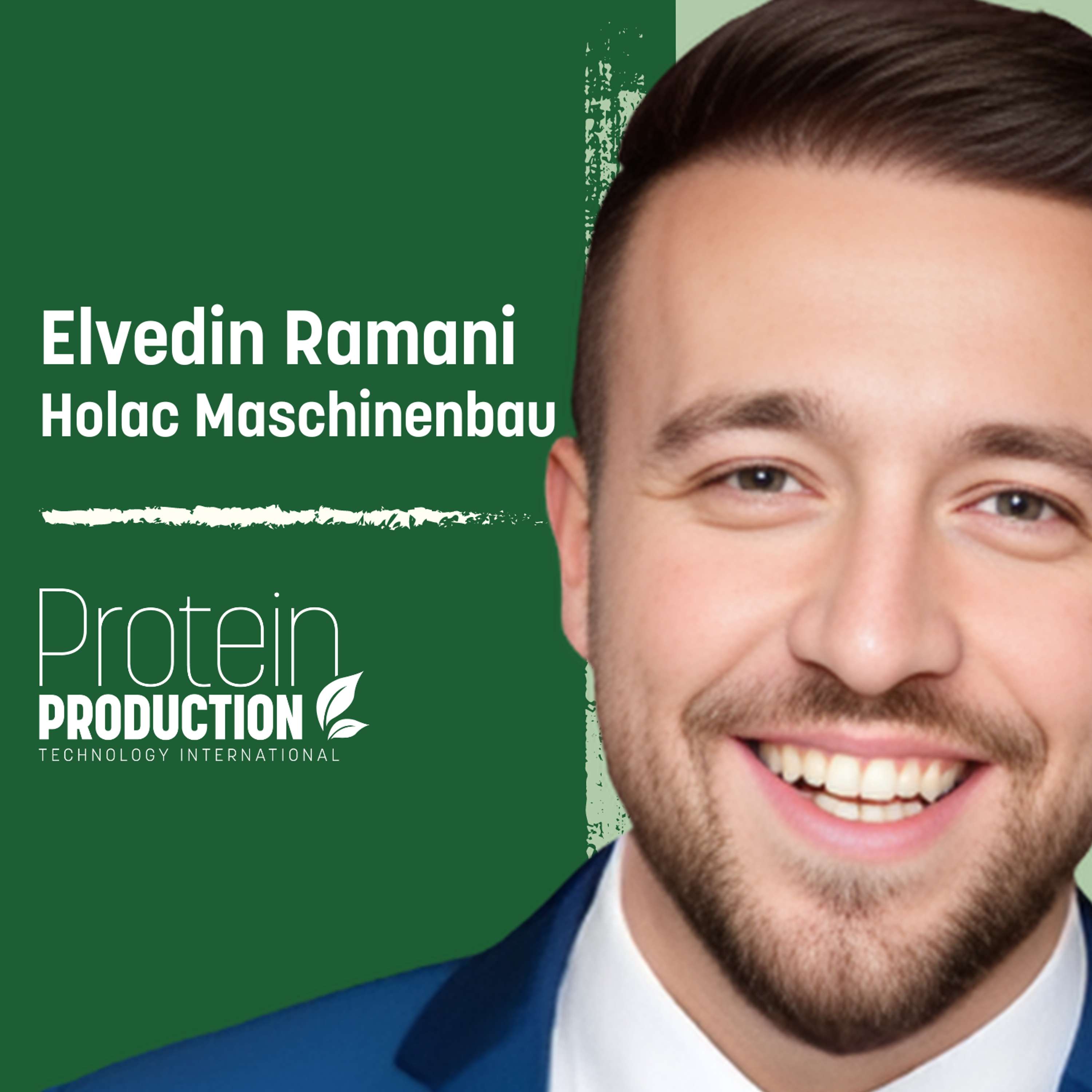



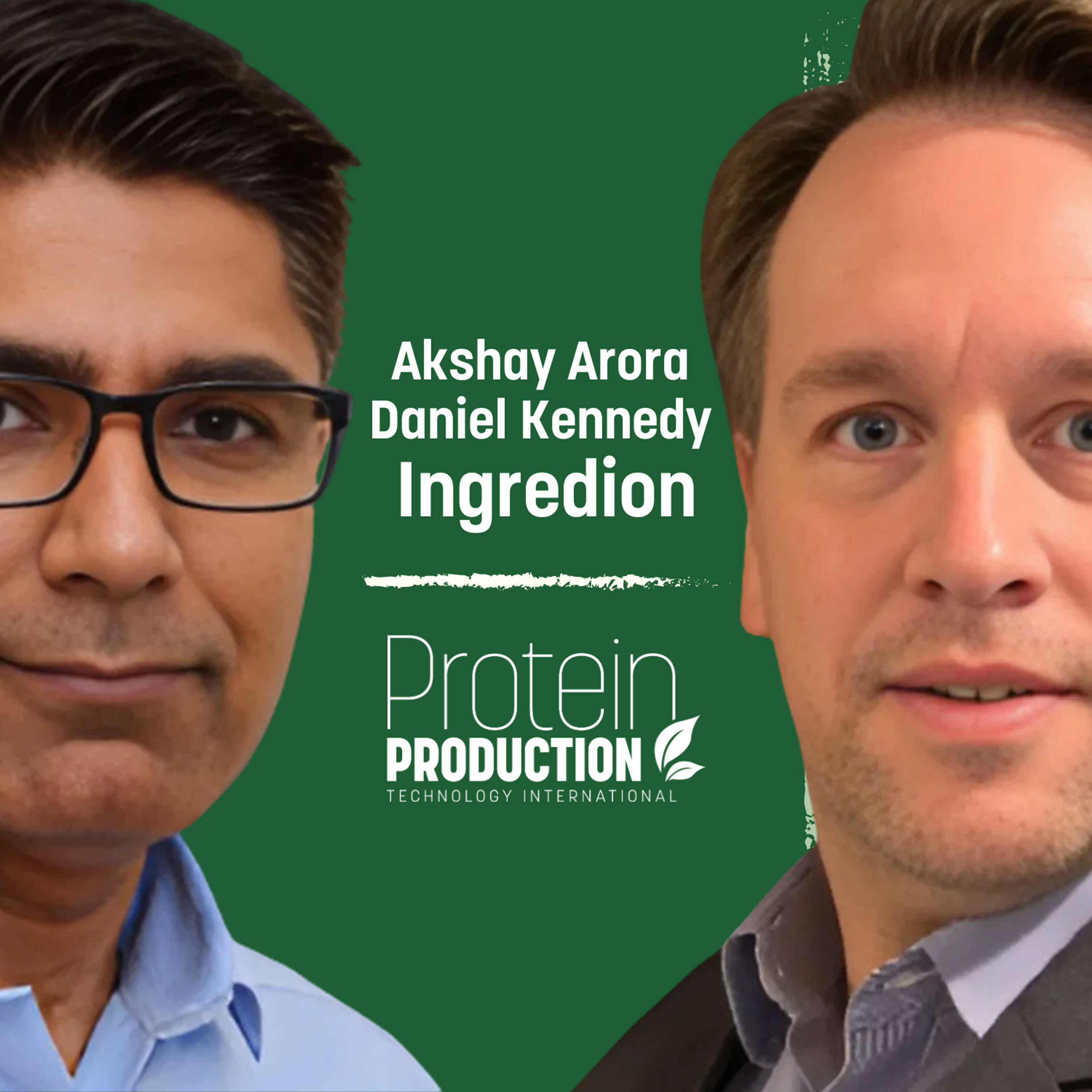
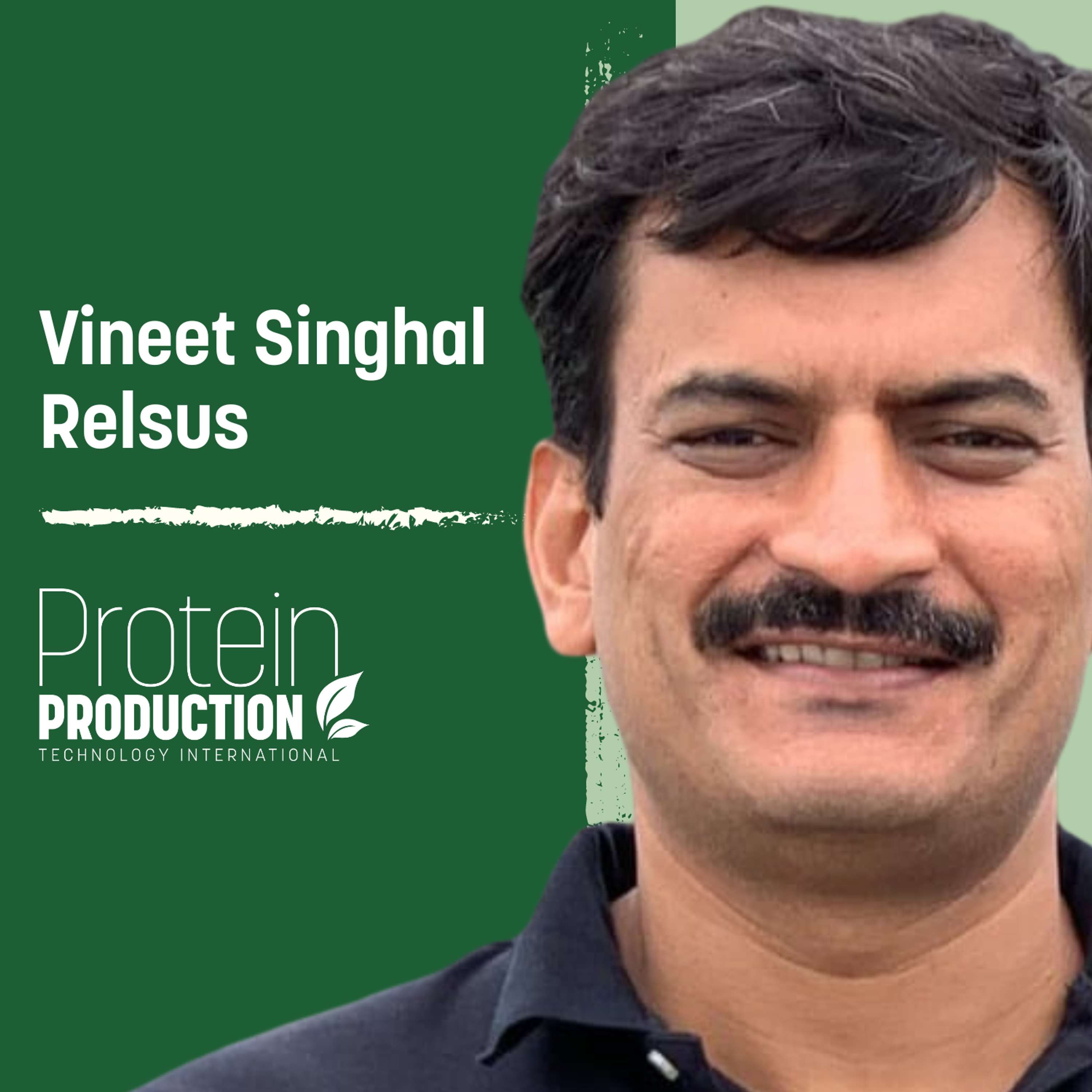

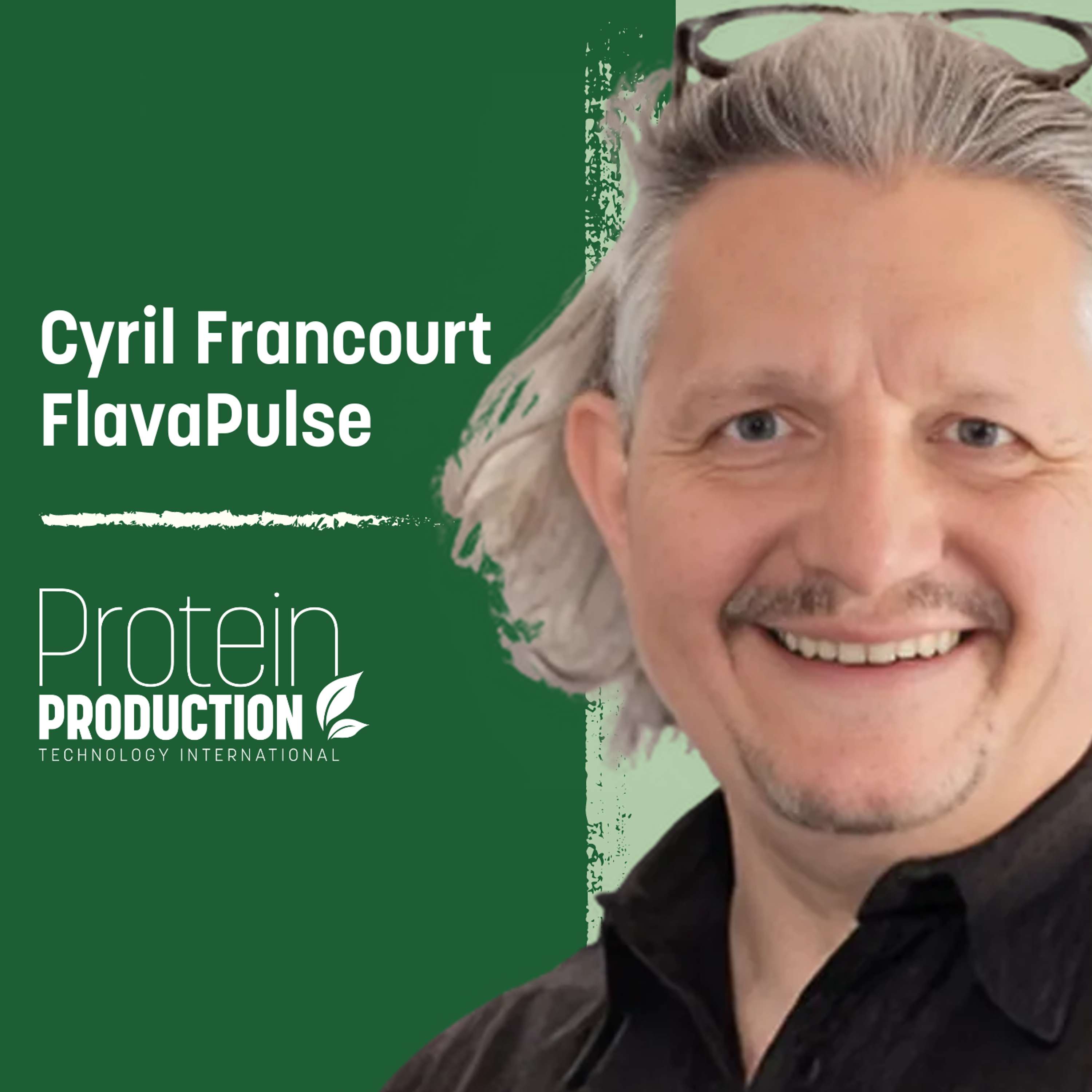

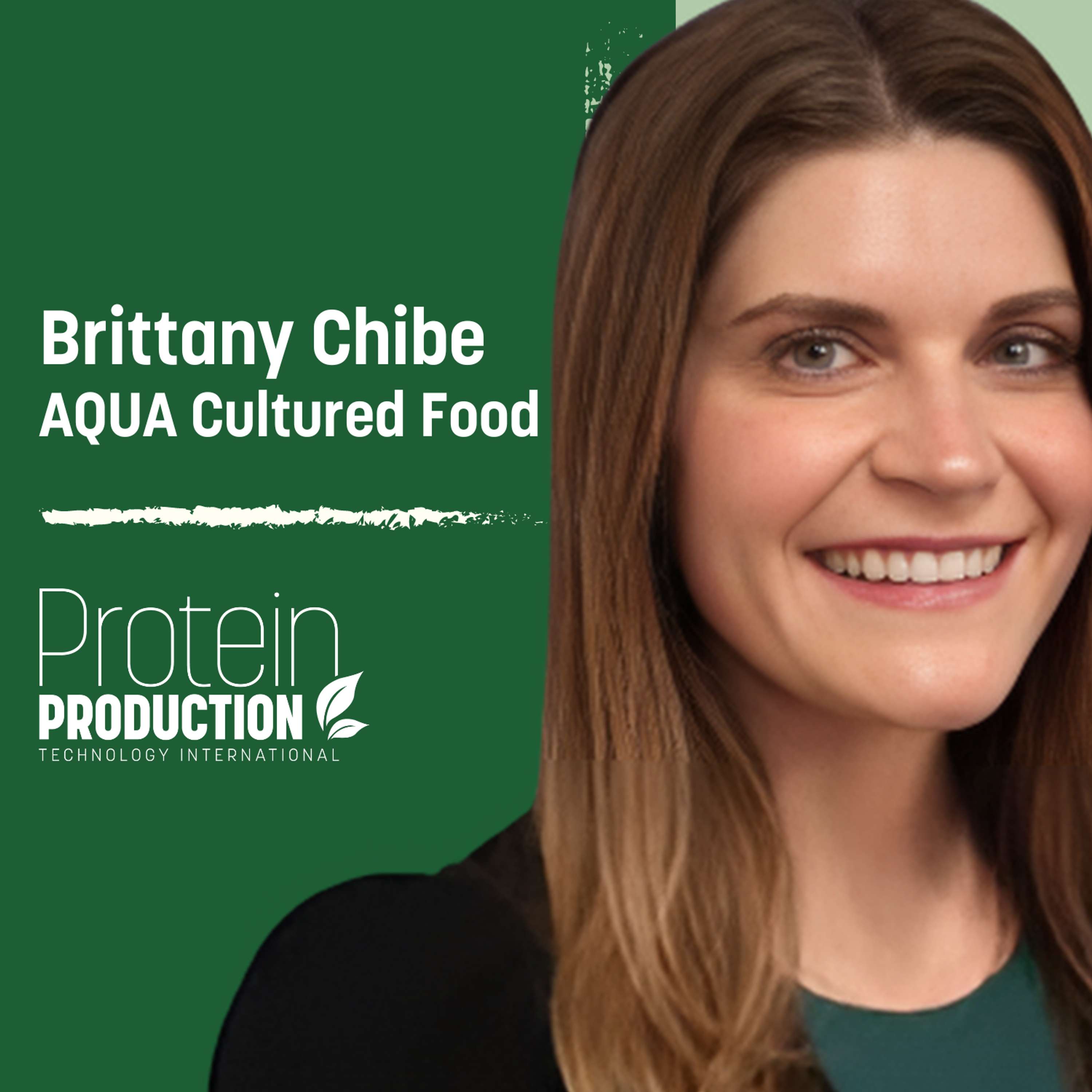

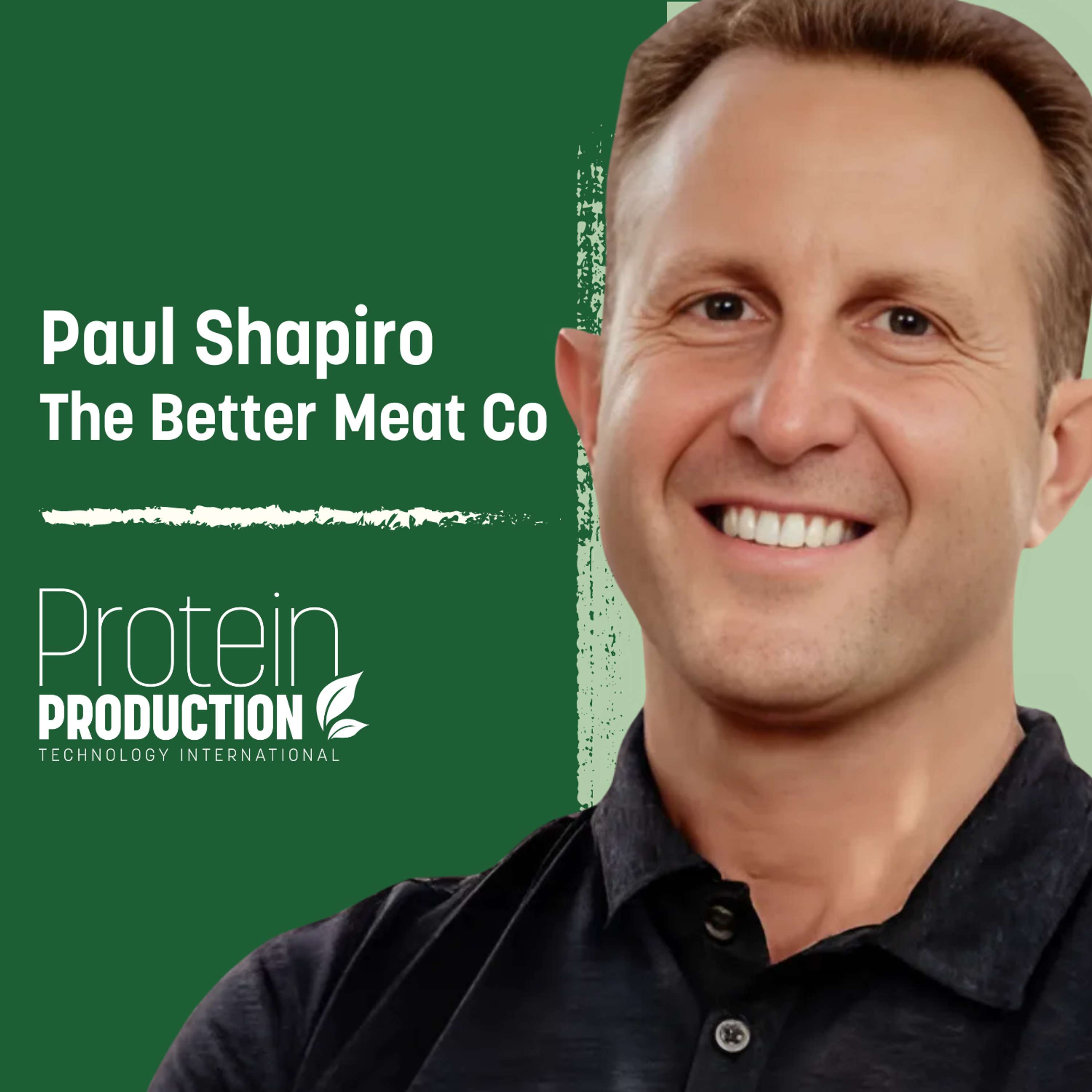
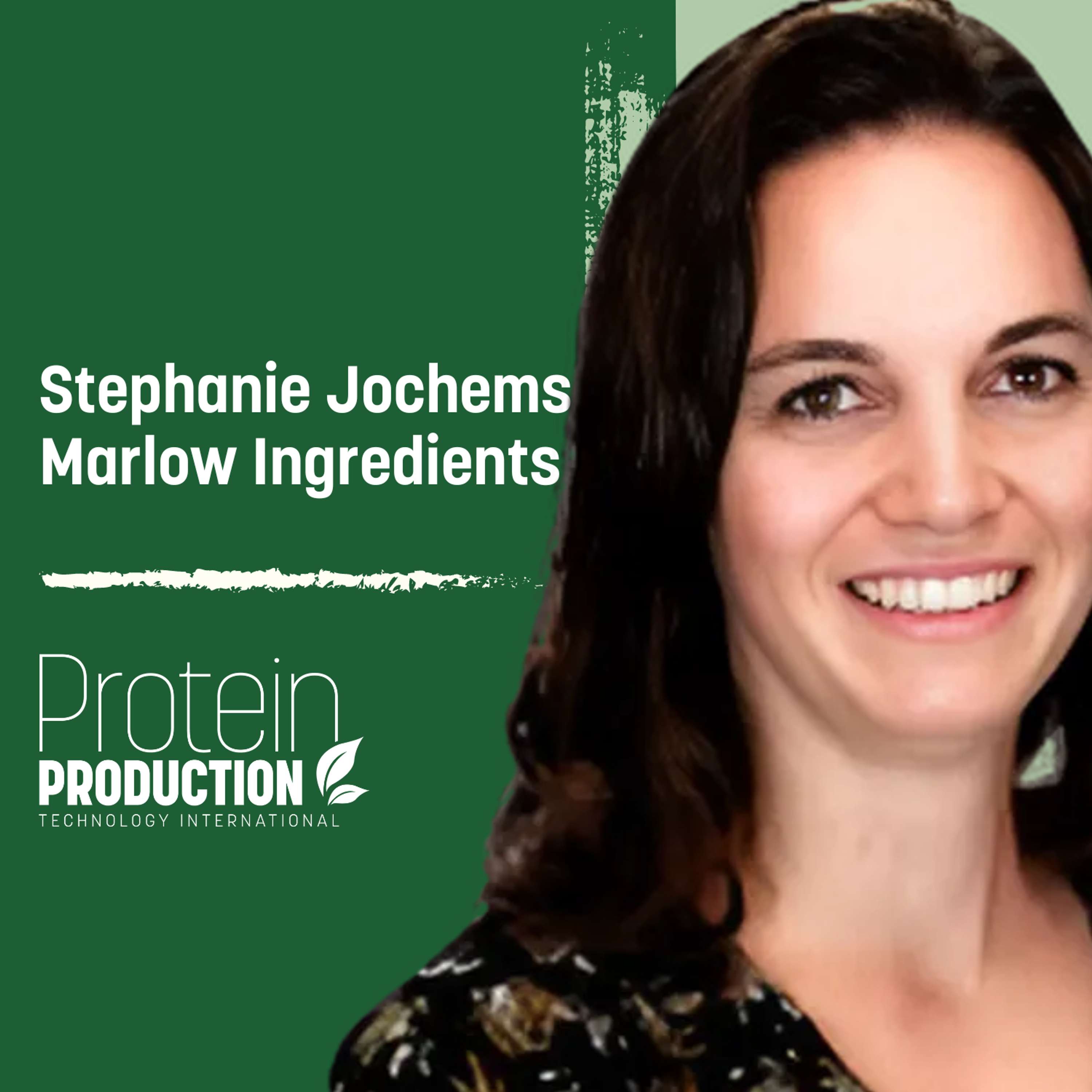
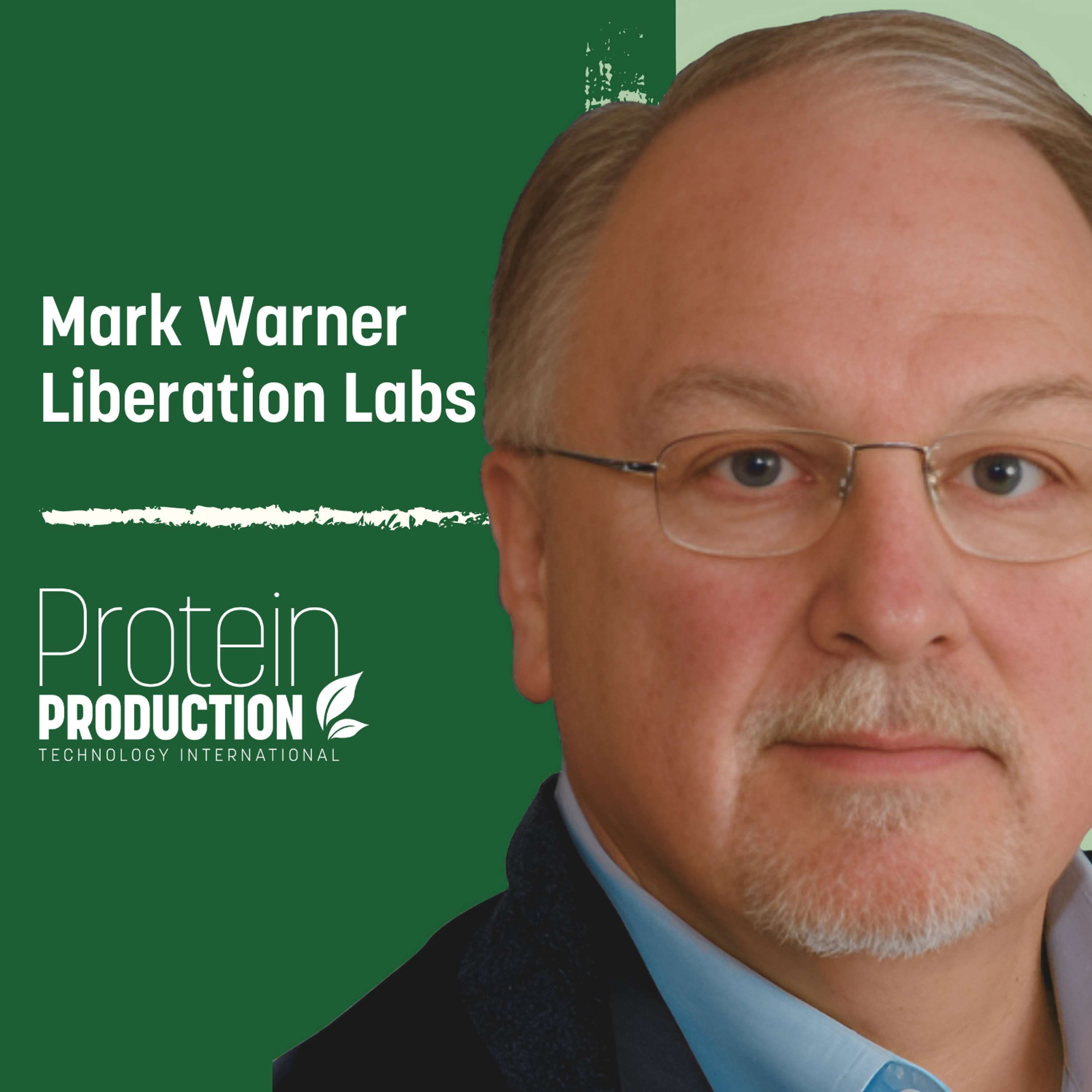

























The information you shared is excellent. Protein is one of the essential nutrients our bodies need to function properly. It is made up of smaller building blocks called amino acids. There are 20 different amino acids, and our bodies can produce some of them, but we need to get others from the food we eat For more details visit here https://www.topessaywriting.org/samples/protein The amount of protein you need depends on factors like age, sex, and activity level. Generally, adults should aim for about 46-56 grams of protein per day.Protein is a vital nutrient that plays many roles in our bodies. Eating a balanced diet with a variety of protein sources can help keep you healthy and strong